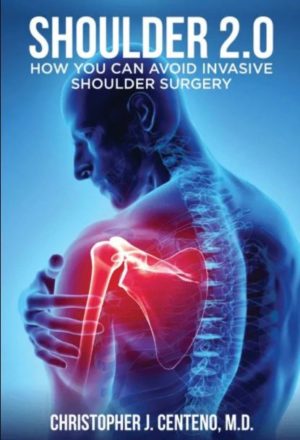Rotator cuff tears may be common, but it can still be worrisome to find out that you have one. Just hearing the word tear associated with any part of the body sounds bad, and our first thoughts might be to get it repaired—after all, that’s what you do with any kind of tear, right? Pair this with a doctor who might also be recommending surgery, and it certainly seems like the right thing to do. What if your MRI also shows that rotator cuff tear is “full thickness”? That sounds even worse, but all the terminology aside, is surgery really the right way to go? Before we explore that question, let’s review what a rotator cuff really is and what the different types mean.
The Different Types of Rotator Cuff Tears
The rotator cuff is not one solid structure but a group of structures, specifically muscles and tendons, that make up the shoulder. Rotator cuff tears occur when a tendon experiences one of three types of tears. A partial tear means it has not completely torn through the tendon. A full-thickness tear can be one of two situations: either a complete tear through the tendon but not retracted (meaning the tendon has not snapped back like a rubber band) or a complete tear through the tendon that is retracted (meaning the tendon has snapped back like a rubber band).
Do I Need Rotator Cuff Tear Surgery?
While a partial tear is less severe than a full-thickness tear, it doesn’t mean surgery should be a given if the tear is more severe. In fact there is a great deal of research suggesting that surgery or no surgery, the improvement of partial or full-thickness rotator cuff tears, in most cases, is the same.
One meta-analysis of 57 randomized controlled trials looking specifically at full-thickness rotator cuff tears found surgery outcomes for the tears were no better than physical therapy treatment or no treatment at all. That’s 57 high-level studies! This should be big and concerning news in the surgical orthopedic world, but surgeons are still doing the surgeries to the tune of around 40,000 procedures a year in the U.S., and insurance is still covering it. And it doesn’t stop there, check out these other studies on rotator cuff tears:
- Not only is no treatment as effective as surgery for rotator cuff tears, but it’s effective long term.
- Another study found that over 30% of patients who have rotator cuff surgery don’t fully heal. This is following lengthy downtimes and painful rehab to attempt to reclaim range of motion and strength.
- Retears after a rotator cuff tear surgery have been shown to occur in a disturbing 6 of 10 patients.
- If you’re an athlete, especially one that requires a full range of shoulder motion, don’t expect a fast recovery or even a return to the game at the same level prior to your rotator cuff tear. Recovery is long, and a whopping 50% of athletes never realize their preinjury performance levels following rotator cuff tear surgery.
- What about pain? Bad news here, too. Rotator cuff tear surgery may not touch your pain level. Why? The rotator cuff tear may not even be the actual cause of your shoulder pain, especially if you are middle aged or older as rotator cuff tears occur as a normal part of wear and tear with aging.
Is There a Nonsurgical Alternative?
Rather than very invasive rotator cuff tear surgery, rotator cuff tears can be treated with an injection of your own precise image-guided stem cells. That’s right, without surgery. And if your shoulder pain isn’t actually sourced in your shoulder (for example, perhaps a pinched nerve in the neck is causing your shoulder pain), your interventional orthopedic physician will be able to trace and treat the primary cause as well. Take a look at Dr. Schultz performing a shoulder procedure in the video below:
Study after study has continued to show the ineffectiveness of rotator cuff tear surgery. Don’t let the word “tear” scare you when you’re diagnosed with a rotator cuff tear, even if it’s full-thickness. Surgery should never be a given for a rotator cuff tear. Instead of consulting with an orthopedic surgeon, talk to your interventional orthopedic physician, who can determine if you are a candidate for a nonsurgical solution for your rotator cuff tear.

